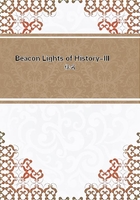
第32章
Fontaine abbey possessed forty thousand acres of land. The abbot of Augia, in Germany, had a revenue of sixty thousand crowns,--several millions, as money is now measured. At one time the monks, with the other clergy, owned half of the lands of Europe. If a king was to be ransomed, it was they who furnished the money; if costly gifts were to be given to the Pope, it was they who made them. The value of the vessels of gold and silver, the robes and copes of silk and velvet, the chalices, the altar-pieces, and the shrines enriched with jewels, was inestimable. The feasts which the abbots gave were almost regal. At the installation of the abbot of St. Augustine, at Canterbury, there were consumed fifty-eight tuns of beer, eleven tuns of wine, thirty-one oxen, three hundred pigs, two hundred sheep, one thousand geese, one thousand capons, six hundred rabbits, nine thousand eggs, while the guests numbered six thousand people. Of the various orders of the Benedictines there have been thirty-seven thousand monasteries and one hundred and fifty thousand abbots. From the monks, twenty-one thousand have been chosen as bishops and archbishops, and twenty-eight have been elevated to the papal throne.
From these things, and others which may seem too trivial to mention, we infer the great wealth and power of monastic institutions, the most flourishing days of which were from the sixth century to the Crusades, beginning in the eleventh, when more than one hundred thousand monks acknowledged the rule of Saint Benedict. During this period of prosperity, when the vast abbey churches were built, and when abbots were great temporal as well as spiritual magnates, quite on an equality with the proudest feudal barons, we notice a marked decline in the virtues which had extorted the admiration of Europe. The Benedictines retained their original organization, they were bound by the same vows (as individuals, the monks were always poor), they wore the same dress, as they did centuries before, and they did not fail in their duties in the choir,--singing their regular chants from two o'clock in the morning. But discipline was relaxed; the brothers strayed into unseemly places; they indulged in the pleasures of the table; they were sensual in their appearance; they were certainly ignorant, as a body; and they performed more singing than preaching or teaching.
They lived for themselves rather than for the people. They however remained hospitable to the last. Their convents were hotels as well as bee-hives; any stranger could remain two nights at a convent without compensation and without being questioned. The brothers dined together at the refectory, according to the rules, on bread, vegetables, and a little meat; although it was noticed that they had a great variety in cooking eggs, which were turned and roasted and beaten up, and hardened and minced and fried and stuffed. It is said that subsequently they drank enormous quantities of beer and wine, and sometimes even to disgraceful excess. Their rules required them to keep silence at their meals;but their humanity got the better of them, and they have been censured for their hilarious and frivolous conversation,--for jests and stories and puns. Bernard accused the monks of degeneracy, of being given to the pleasures of the table, of loving the good things which they professed to scorn,--rare fish, game, and elaborate cookery.
That the monks sadly degenerated in morals and discipline, and even became objects of scandal, is questioned by no respectable historian. No one was more bitter and vehement in his denunciations of this almost universal corruption of monastic life than Saint Bernard himself,--the impersonation of an ideal monk.
Hence reforms were attempted; and the Cluniacs and Cistercians and other orders arose, modelled after the original institution on Monte Cassino. These were only branches of the Benedictines.
Their vows and habits and duties were the same. It would seem that the prevailing vices of the Benedictines, in their decline, were those which were fostered by great wealth, and consequent idleness and luxury. But at their worst estate the monks, or regular clergy, were no worse than the secular clergy, or parish priests, in their ordinary lives, and were more intelligent,--at least more learned. The ignorance of the secular clergy was notorious and scandalous. They could not even write letters of common salutation; and what little knowledge they had was extolled and exaggerated. It was confined to the acquisition of the Psalter by heart, while a little grammar, writing, and accounts were regarded as extraordinary. He who could write a few homilies, drawn from the Fathers, was a wonder and a prodigy. There was a total absence of classical literature.
But the Benedictines, idle and worldly as they were, guarded what little literature had escaped the ruin of the ancient civilization.